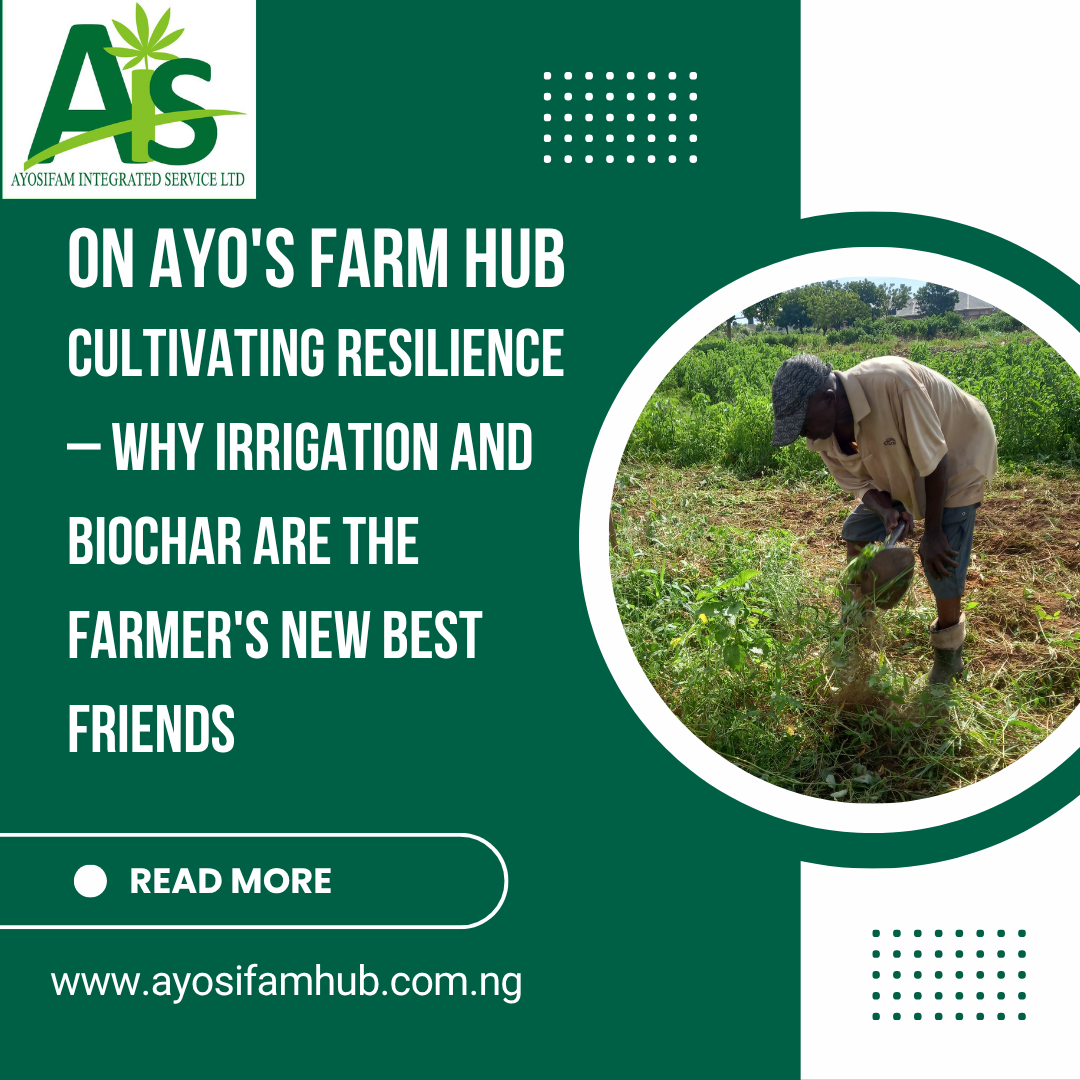By The AyosifamHub Team
Here at AyosifamHub, we’re always eager to share inspiring stories from the heart of Nigerian agriculture. Today, we bring you the powerful journey of Mr. Ayo Lawal, a dedicated farmer right here in Ilorin, Kwara, whose decades of experience paint a vivid picture of passion, perseverance, and the pressing need for innovation in the face of our changing climate.
For Mr. Lawal, farming is more than just a livelihood; it’s a deep-seated passion. Yet, for the past four seasons, he, like many farmers across the Lower Niger region, has faced the harsh reality of unpredictable weather, leaving his fields barren and his efforts unrewarded. The emotional and financial toll was so heavy that Mr. Lawal almost decided to hang up his tools this year.
But the persistent questions from his neighbours – “Ayo, aren’t you farming this year?” – and the proactive spirit of his son, who had already begun planting maize, reignited his spirit. With renewed, albeit cautious, hope, Mr. Lawal put a small patch of maize in the ground.
Now, his young maize plants, just about a month old, are struggling. They have experienced rainfall only once in the past nine days, and the sun beats down relentlessly. Rain has refused to fall, and the need for water is urgent. Yet, Mr. Lawal’s faith remains unshaken, believing that farming, whether it yields much or little, is his calling. In a gesture of support, a friend recently gave him a Mini Power Cultivator Tiller, a helpful tool from the Lower Niger River Basin Authority (LNRBA), to make his farming easier. While this tiller offers valuable assistance for land preparation, Mr. Lawal’s immediate challenge, and the focus of our discussion, remains the critical need for water.
Mr. Lawal’s journey highlights two critical pillars for sustainable and resilient farming in our changing climate: the vital importance of irrigation and the smart use of biochar.
The Lifeline: Embracing Irrigation and Dam Advantage
Mr. Lawal’s current maize crop, now thirsting for water, is a stark reminder of the absolute importance of irrigation. While our traditional farming in Ilorin and across Nigeria has relied heavily on rain-fed systems, the reality of increasingly unpredictable weather patterns makes this approach a gamble we can no longer afford. The Lower Niger River Basin Authority (LNRBA), with its mandate to develop and manage water resources, including for irrigated agriculture, offers solutions that can be game-changers for farmers like Mr. Lawal.
Dams and their associated irrigation schemes are not just government projects; they are our potential lifelines. They represent a consistent, controlled water source that can transform farming from a season-dependent gamble to a year-round endeavor. Imagine being able to plant and harvest even during the dry season, providing food security for our families and communities, and a steady income for ourselves. While Mr. Lawal hopes for rain, his situation underscores why farmers need to leave their corridor of relying solely on natural rainfall and make advantage of dam and irrigation infrastructure. Access to these water sources can literally save a crop, ensuring yield even when the skies are empty.
Our call to all farmers: Let’s actively seek out and utilize these resources. The dams and irrigation facilities managed by bodies like the LNRBA are there for us. Whether it’s through direct access to irrigation canals or through initiatives that provide tools or training on water management, embracing irrigation is how we move from hoping for rain to actively ensuring our crops receive the water they need. Simple, low-cost irrigation solutions like drip irrigation, treadle pumps, and even rainwater harvesting, tailored to individual farm sizes and water availability, can make a monumental difference.
The Soil’s Sponge: Why Biochar is a Must
Beyond immediate water supply, we need to think long-term about our soil’s ability to retain moisture. This is where biochar comes in as an invaluable ally, far surpassing the benefits of conventional inorganic fertilizers alone.
Biochar, a charcoal-like substance produced from heating organic matter in a low-oxygen environment, acts like a sponge in the soil. Its porous structure significantly enhances the soil’s water-holding capacity. This means that when rain does fall, or when we irrigate, the water is held in the soil for much longer, making it available to our plants for extended periods, especially during dry spells.
Consider the contrast with inorganic fertilizers. While they provide essential nutrients, they do little to improve the soil’s physical structure or its ability to retain water. In unpredictable weather, where dry periods can be severe, relying solely on inorganic fertilizers leaves our crops vulnerable to drought stress. Biochar, on the other hand, helps the plant maintain a certain level of hydration even when rain has refused to fall, giving it a crucial buffer against unpredictable weather.
Furthermore, biochar also improves soil fertility, enhances nutrient retention by increasing the soil’s cation exchange capacity (CEC), and can even contribute to carbon sequestration, making our farming practices more environmentally friendly. It’s a win-win for both productivity and the planet, especially in our tropical soils where organic matter decomposes rapidly.
Mr. Lawal’s faith in farming, despite the challenges, remains strong. It’s a passion that runs deep. But passion alone isn’t enough in the face of a changing climate. It needs to be coupled with smart practices and strategic partnerships. The vital access to irrigation, the beneficial use of tools like the Mini Power Cultivator Tiller, and the scientific understanding of soil amendments like biochar, are not just conveniences; they are essential elements for cultivating resilience in our agricultural endeavours.
Let Mr. Lawal’s story be a rallying cry. Let’s step out of our traditional comfort zones, embrace innovation, and actively leverage the resources available to us through institutions like the LNRBA. By combining the power of irrigation with the water-retaining magic of biochar, we can turn the tide against unpredictable weather and ensure that our passion for farming continues to yield results, season after season.
What strategies are you using on your farm to combat unpredictable weather? Share your experiences in the comments below!




